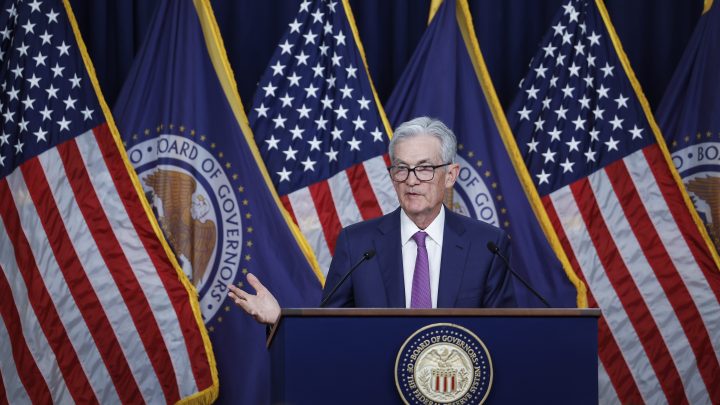
Some economists say monetary policy is too restrictive and fiscal policy is too stimulative. Huh?
Some economists say monetary policy is too restrictive and fiscal policy is too stimulative. Huh?

When you ask economists what they think about the Federal Reserve’s monetary policy, as in interest rates, a growing number of them will tell you that rates are restricting the economy too much right now. That’s according to a survey out this week from the National Association for Business Economics.
Thing is, the survey also found that most economists think the government’s fiscal policy, as in government spending, is stimulating the economy too much. So, what happens when team monetary goes up against team fiscal?
On the monetary side, some economists are starting to wonder if the Federal Reserve should back off from the inflation fight. Because keeping interest rates high for too long might be bad for other parts of the economy, like the labor market.
“The risks on inflation have fallen a lot, and the risks to unemployment increased a lot,” said Preston Mui, senior economist at the research group Employ America.
He said that if the Fed pushes too far against inflation, unemployment could rise quickly. Lowering rates would prevent that.
“So it’s important not to wait until you see the whites of unemployment’s eyes to start cutting,” he said.
Still, even as the Federal Reserve uses monetary policy to slow down the economy, the White House and Congress have been using fiscal policy to do the opposite.
“Doing a lot of things with the Inflation Reduction Act, we had a lot of policies that were actually designed to help grow the economy,” said Lester Jones, a survey analyst with the National Association for Business Economics. His main job is chief economist with the National Beer Wholesalers Association.
Jones said we don’t want fiscal policy to compete against monetary policy. Especially since the Fed’s made progress slowing the economy down.
“And if one’s gotta give, let’s kind of back off on the fiscal policy and let monetary policy direct the economy in the right direction,” he said.
One fear, Jones said, is that too much fiscal stimulus would drive up government spending. And, therefore, the deficit.
Anne Villamil, an economics professor at the University of Iowa, said reducing that deficit would require some tough decisions.
“The way to solve a structural deficit is either to reduce the rate of growth of government spending and/or to raise some form of taxes.”
And the longer the government waits to act, Villamil said, the more drastic those moves will need to be.
There’s a lot happening in the world. Through it all, Marketplace is here for you.
You rely on Marketplace to break down the world’s events and tell you how it affects you in a fact-based, approachable way. We rely on your financial support to keep making that possible.
Your donation today powers the independent journalism that you rely on. For just $5/month, you can help sustain Marketplace so we can keep reporting on the things that matter to you.










